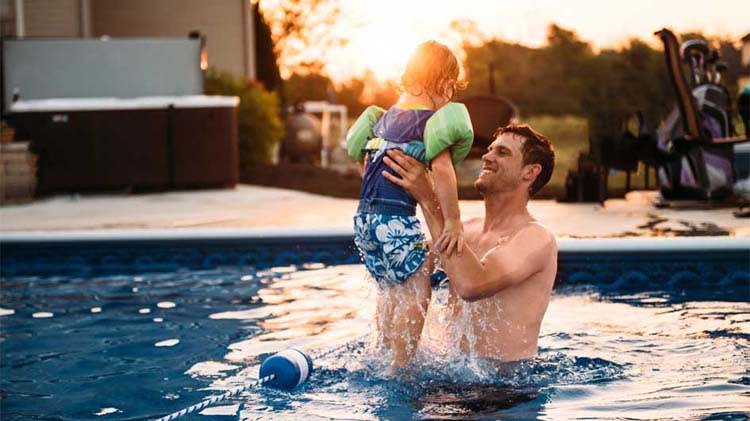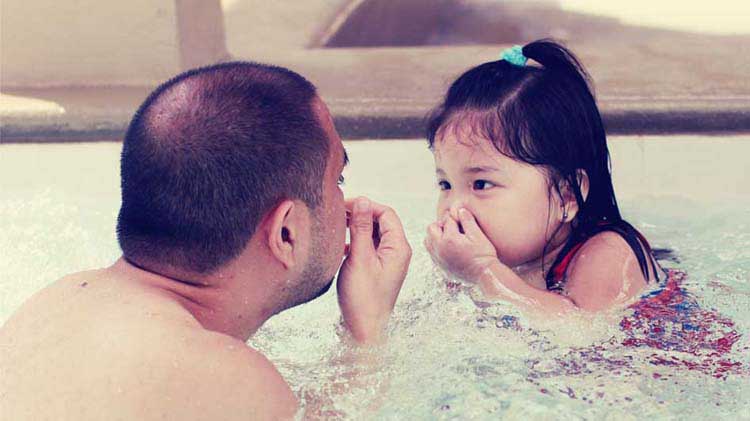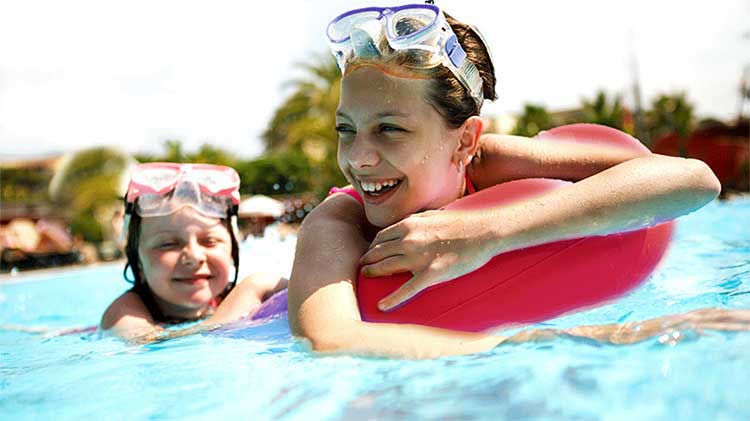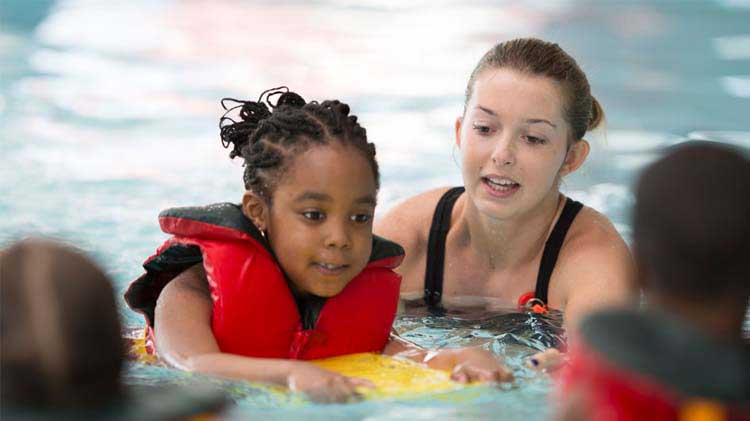Potential swimming pool hazards
Understanding the hidden dangers of swimming pools is an important aspect of pool safety. Learn more about pool safety and what you can do to help keep your family safe.
Whether you're splashing in a public pool or relaxing in your backyard hot tub, be aware of potential pool dangers to help ensure your family and friends stay safe while swimming in a pool. Here are some pool safety tips:
Diving boards, slides and steps
Many pools have diving boards, slides and steps. While everyone enjoys the standard belly flop and cannonball, it's important to make sure these water entry features are right for your pool.
Is your pool deep enough for a diving board?
It's essential that the water depth of the pool is adequate to allow for safe diving practices. If someone were to dive headfirst into a shallow pool, they could sustain a severe injury. The American Red Cross recommends a minimum of nine feet of water depth for headfirst diving.
Slides require a certain depth in the pool, too
Who doesn't love sliding into the water? While there are minimum water depth requirements for slides, the biggest danger is from slips, trips and falls. We've all seen people go down the slide, swim to the side, get out and go right back down the slide. Because of the water on the deck, concrete, or grass surrounding the pool making your way back to the slide can be treacherous. Remind everyone to take it slow and walk to the slide
Does it have handrails for steps?
Pool steps and slide steps can be very slick when wet which could result in an injury from falling. Make sure that your pool and slide is equipped with handrails and that the sides aren't open enough for a little one to slip through.
Pool toys are an unexpected potential danger
As much fun as pool toys can be, they need to be used under close supervision. If there is a person in the pool in need of life saving assistance, pool toys can obstruct them from view of the person watching them. They can also cause a person to flip over and they may be unable to flip the flotation device over resulting in injury.
Pool surfaces can be slippery
“Walk, don’t run!” You can just hear parents reminding their kids not to run at the pool. Concrete, tile, decks and other hard surfaces can get slippery when water or algae accumulates on them.
Pool drains are a hidden entrapment
The strong suction from the drain can grab clothing, hair and even body parts and hold a person against the grate.
- Make sure the drain cover is safety-compliant. The Virginia Graeme Baker Pool and Spa Safety Act requires all residential swimming pools have a proper drain cover to prevent entrapment.
- Install a Safety Vacuum Release System. It will shut off a pool or spa pump if a blockage is detected.
- Watch children carefully. Smaller bodies can be more susceptible to pool suction. Teach children pool drain safety and monitor them closely while they're in the water.
- Keep a phone nearby so someone can call 911 in an emergency.
- Learn a release technique. According to Poolsafely.gov, after turning off the pump and calling 911, you should slip your fingers between the victim and the drain, and then roll them off. (Do not yank the person. This could cause an injury.)
Water quality
A clean pool, with chemicals used in the right amounts, is important to help avoid the growth of bacteria that can cause eye, ear, skin and nose infections.
Pool chemicals
All the chemicals used for the pool should be tightly sealed, used as the manufacturer recommends and located away from children. If chlorine is used it may dry out skin, exacerbate asthma and if swallowed may kill the good bacteria in your stomach.
Electrical equipment
Water and electricity are dangerous when mixed. Any equipment powered by electricity should be grounded and kept at a safe distance from the pool. Outdoor outlets should be ground fault circuit interrupter (GFCI). And it’s very important to always get out of the pool when lightning is present.
Pool covers
When pools aren’t being used in cooler weather, covers are sometimes placed over the top. These covers are not meant to be walked on by anyone, including pets. Many times, the cover is kept in place with weights around the edges. If a child or pet were to walk across the cover they could be in jeopardy.
Now that you have learned about some potential hazards of swimming pools, you may be interested in water safety tips or tips for swimming in the ocean. Also, feel free to contact a State Farm® agent if you have questions about swimming pool coverage on your policy.




